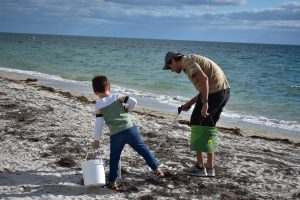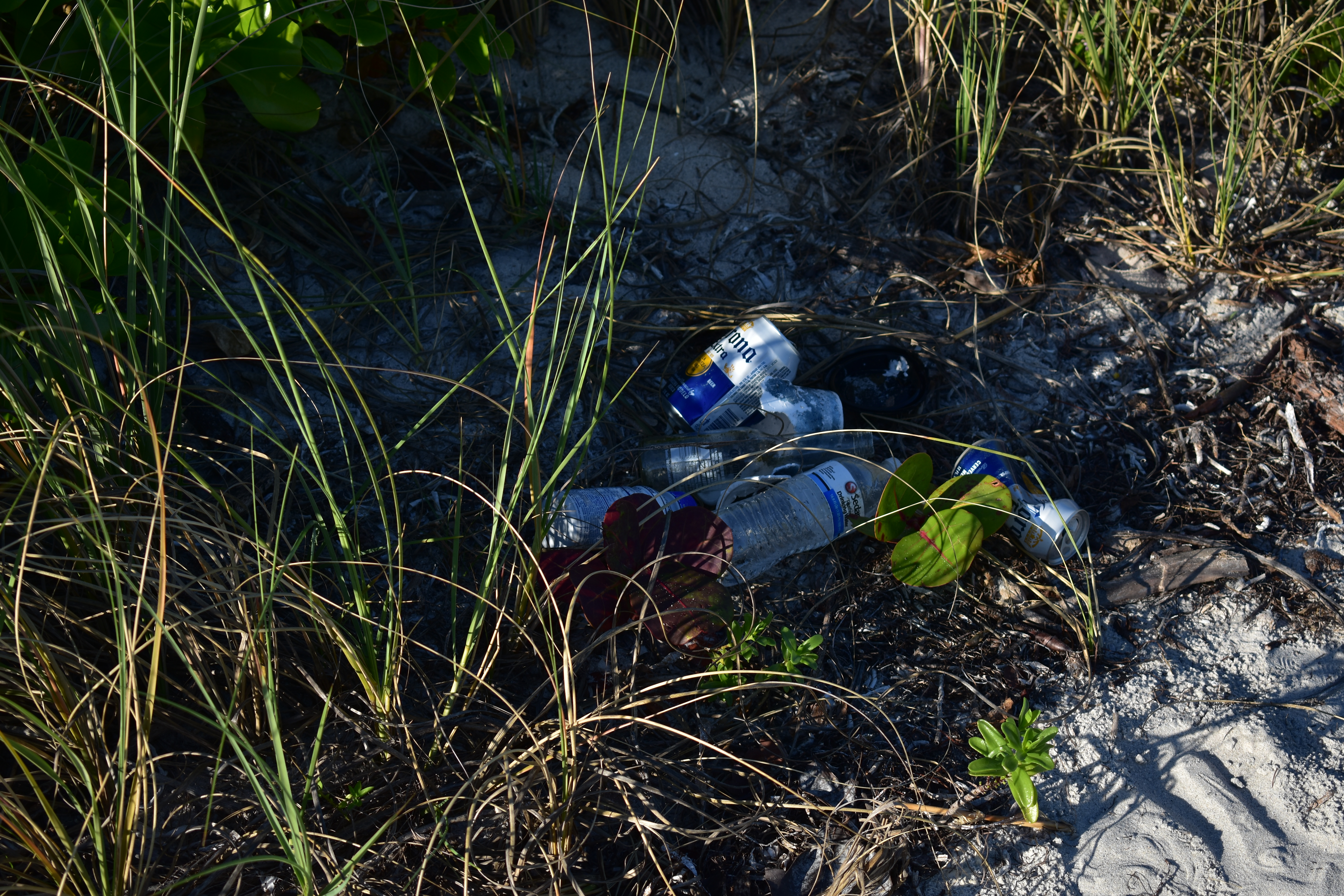As water quality deteriorates in South Florida, citizens and organizations work hard to stop plastic pollution and trash in Biscayne Bay.
Debris Free Ocean is one of many South Florida organizations working hard to raise awareness about the issues of single-use plastics and trash filling up the marine ecosystem.
Debris Free Ocean alone has picked up over 43,000 pounds of trash at beach cleanups over the last six to seven years.
Maddie Kaufman, the outreach coordinator for the organization, has worked closely alongside many South Florida groups dedicated to community service, activism, and environmental protection.
“We have cleanups about two or three times a month,” she said. “It is a really great way for us to connect with the community and still clean up the harmful pollution that is out there.”
She cited some of the unique beach cleanup opportunities the organization plans: scuba diving, yoga, a Biscayne Bay boat tour, and “Keg & Kleans.”
“We also like to add fun elements to our beach cleanup events, so we are not always simply preaching to the choir,” Kaufman said.

According to Kaufman, they are designed to attract groups and communities that “wouldn’t necessarily sign up for regular cleanups.” These serve to inform them of the issues while still having a good time.
The organization also dedicates much attention to educational presentations at schools and businesses. The organization presents businesses with facts about the dangers of using single-use plastics and the cost-effective benefits of opting for reusable or biodegradable alternatives.
Haley Brathwaite, a University of Miami undergrad and Chef Andrew Scholar intern for Debris Free Oceans, focuses on giving presentations at schools across South Florida, emphasizing single-use plastics and plastic pollution.

“Education is the first and the most important step. People need to know why plastics are harmful for the environment and that is when we can create a society that is more sustainable,” she said.
Isabella Herrera, a Florida International University student and fellow intern, emphasized that speaking in presentations to schools and community groups was essential in “trying to empower them in taking a stance and make a difference in this issue,” by being more sustainable overall.
“Impacting the youth at a younger age and making them conscious of the issue now can influence local, regional, and global economies to be more sustainable and less reliant on plastics,” she said.
In fact, Debris Free Ocean partnered with other local organizations to advocate for Miami-Dade County’s “Plastic-Free 305” program passed on December 1st. According to Miami Waterkeeper’s website, over 450 community members submitted letters supporting this resolution to recognize and help businesses that eliminate single-use plastics.
However, the issue of plastic pollution is part of a much larger issue regarding the health of Biscayne Bay and the bay’s water quality.

There are quite a few additional issues that plague South Florida and the bay, including fertilizer use and runoff, stormwater infrastructure, leaky septic tanks, and outdated wastewater infrastructure such as bursting sewage pipes.
Emilio Lopez, founder of SOP Technologies and member of the Biscayne Bay Marine Health Coalition, focuses on the issue of nutrient pollution that deteriorates the water quality in Biscayne Bay.
His company specializes in stormwater filters that prevent plastic, trash and natural waste, such as leaves, from entering stormwater drains.
“The source of the problem is human behavior,” Lopez said. “A lot of the trash you see in the ocean or in the bay didn’t begin with landfills or boaters. A lot of it starts from litter on the road. This is why we start here with the problem.”
The high amounts of litter, plastic, and waste pollution in the water contribute to the amount of carbon and nitrogen. These elements present in Biscayne Bay deteriorate the water quality and the marine life within the bay.
According to Lopez, there are over 95,000 storm drains and inlets throughout Miami-Dade County. Data revealed that a total of 16 million pounds of leaves and trash enter the stormwater inlets annually, contributing to over four thousand pounds of total phosphorus and over ten thousand pounds of Total Nitrogen.
“It is a very long chain reaction,” Lopez said. “When [the elements] dissolve in the water it adds more nutrients, which adds to more algae, which means less plant life at the bottom because sunlight does not get through… and once there is less seagrass and plant life at the bottom of the ocean, then there is less fish.”
Kaufman stated that her organization is part of a larger community in South Florida. She says that many of the organizations cooperate in organizing events and raising awareness of these issues plaguing the health of the marine ecosystem.
To her, beach cleanups are not the solution to this large-scale issue but reactive measures taken to limit the harm.
She compared it to a “flooding bathroom” where “one could never save the bathroom from flooding by simply mopping… unless you turn off the sink.”
“You have to stop the flow of plastics to the ocean by stopping our dependence on using single-use plastics on land,” she said. “That will prevent the single-use plastics from entering our supply chains and waste drains and potentially, the ocean.”






































